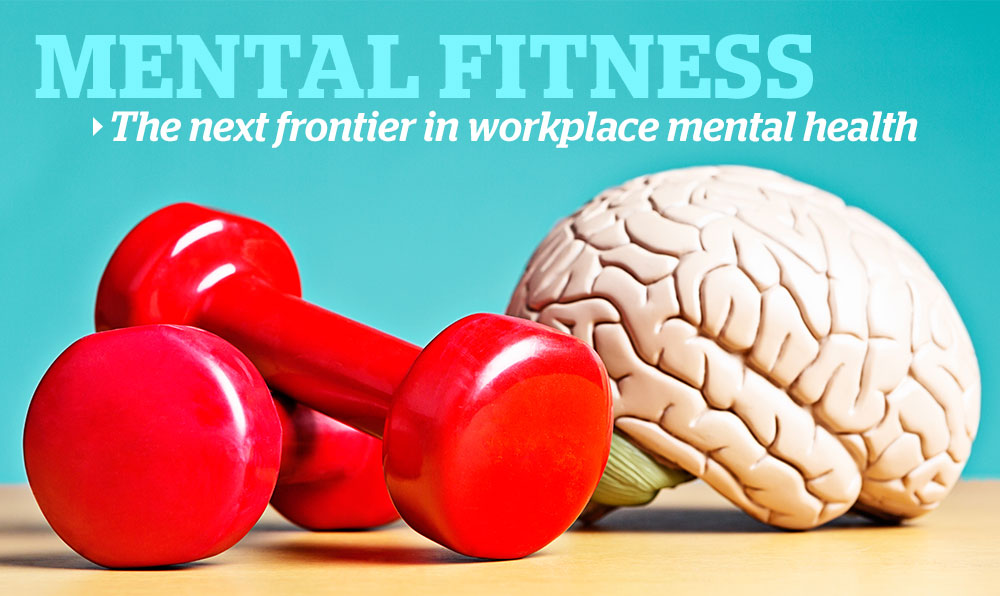

Columns/Blogs
Features
Mental Health
Moving forward in your mental fitness journey often begins with self-forgiveness
By Bill Howatt

EDITOR’S NOTE: ‘Mental Fitness: The next frontier in workplace mental health’ is a weekly series, in partnership with Dr. Bill Howatt of Howatt HR Consulting in Ottawa. This series takes a deeper look at mental fitness — an approach to prevent mental harm and promote mental health.
One of the gifts of COVID-19 is that it has created space for me to write more. Finding a positive in a challenging time can help us cope better with our current reality instead of dreading what we cannot change.
I am now working on a new book that addresses the topic of regret and its role in shaping our mental health. At the core of regret is determining that a setback was the result of a mistake and believing we could have made a better decision.
We are not perfect; we have all heard this. Have you ever answered the question for yourself, “Do I believe I have to be perfect to be happy?” Most will say no.
But do we really mean it when a mistake really hurts? For example, when a mistake costs a job or a relationship, how hard we are on ourselves?
Self-awareness is a critical microskill, as we will make mistakes. Often, mistakes happen at inopportune times and cost emotional or financial pain.
Self-forgiveness is a form of forgiveness. Forgiveness involves a conscious choice to replace ill will with goodwill. When we have a moment when our decision or action costs us, it is easy to be critical of ourselves and engage in self-labelling (for example: I am dumb, I am no good).
When we attack ourselves, this is ill will. Using language like “I deserve what I get” is a form of self-shaming.
Why this microskill matters
- Self-forgiveness improves our well-being and productivity. Research has shown that those who practise self-forgiveness have better mental well-being, more positive attitudes, and healthier relationships.
- One study of participants who reported significantly more self-forgiving beliefs and fewer feelings of remorse and self-condemnation than participants who did not were less likely to engage in a behaviour that broke the law (for example: drinking while driving).
At our core, we are fallible, and we will make mistakes. Self-forgiveness is not about excusing our mistakes and not owning them. It is about not allowing ourselves to engage in self-loathing behaviours that attack our belief system with negative labels and self-talk.
How to practise self-forgiveness
Creating internal peace to move on from a mistake is not as easy as it sounds. It can be challenging and often takes effort and persistence.
Empathy is the act of suspending judgment and accepting that we did not plan to fail the way we did and that no level of self-downing will change what has happened.
Each of the following tips can help create an opportunity for self-forgiveness, which is ultimately a decision that is within our control.
Name your emotions: Before you can move past a mistake, name the emotion. Allow yourself to feel the negative emotion and recognize it for what it is.
Own your mistake: Write out what you believe is the mistake you made and what kind of learning you can get from it. Read it out loud to yourself. Listen carefully to your words, as this can help set the stage for accepting the mistake.
Define the future opportunity: A key piece for moving past any mistake is accepting that you cannot change the past. All you can do is determine the learning from the mistake.
It is helpful to remind yourself in these moments that you were doing the best you could with what you knew and how you were feeling when you made your mistake.
Take on your inner critic: Accept that regardless of how positive and motivated you are to move towards self-forgiveness, your inner critic may not play along nicely. Expect and accept that out of nowhere, irrational or critical thoughts may pop into your head.
Instead of judging yourself or buying into them, notice them and write them down. Then allow your curiosity to kick in, asking yourself what the meaning is and what can be learned.
Think about what you would suggest a friend do if they were in your shoes: We sometimes struggle with giving ourselves advice or even listening to ourselves. Imagine if you had a friend in the same situation as you are. What would you encourage them to do?
Write out this conversation and read it back. You may be surprised at the wisdom you have.
Turn off the tape and start a new song: As we process our mistakes, it is easy to replay them in our head, but this doesn’t do anything. At its core, self-forgiveness is about changing the internal narrative and focusing on what we can control: our future.
Creating a new future means starting a new beginning by accepting our mistakes and forgiving ourselves. This creates the kindness to think about ourselves in a much more positive manner.
 Dr. Bill Howatt is the Ottawa-based president of Howatt HR Consulting and the former Chief of Research and Workforce Productivity at The Conference Board of Canada.
Dr. Bill Howatt is the Ottawa-based president of Howatt HR Consulting and the former Chief of Research and Workforce Productivity at The Conference Board of Canada.
If there is a particular microskill or topic you would like to see Dr. Howatt write on that supports employees’ mental health in the workplace, please send your request to Talent Canada editor Marcel Vander Wier.
Print this page